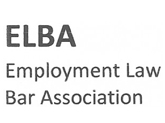
9th January 2017
We can expect to see many different changes to employment law throughout 2017 and after, with several different topics set to have an impact on the laws, including two very hot topics that many people are talking about – Brexit and the “gig economy”.
Brexit
Article 50 has been invoked and the UK has therefore formally stated its intention to leave the European Union.
Although it will be 2 years before Britain leaves the EU after negotiating an exit deal, most people are likely to be affected by the triggering of Article 50 in some way or another. In terms of employment law within the UK, there won’t be any changes for quite some time yet, but it is widely anticipated that our transition out of the EU will mean changes to many of the laws currently in place.
Primary legislation, that is to say individual Acts of Parliament will be needed to displace European laws which currently bind the UK and UK law which was created to give effect to European legislation – such as treaty articles and secondary directives.
For example, the government has announced its intention to revoke the EU Bill of Human Rights and to replace it with a UK Human Rights Act.
Other anticipated changes are expected to include EU workers’ right to work, Working Time Regulations, Agency Worker’s Rights (an area of law which has been crying out for reform and clarification irrespective of any post-Brexit agenda), Health and Safety Legislation and also Food Regulations.
The Gig Economy
The Uber case in 2016, ruled that the contractual terms between Uber and their drivers amounted to employed status rather than self-employed status. The practical implication of this was that Uber drivers were entitled to holiday pay, rest breaks and national minimum wage, clearly creating additional costs for the organisation (reasons for the reserved judgement on preliminary hearing sent to parties on 28 October 2016 – Case Nos: 2202550/2015).
This decision will undoubtedly affect the ‘gig economy’ in future. Although Uber has appealed the decision, there have since been other similar cases involving Deliveroo and CitySprint. These cases have huge commercial implications. It is therefore possible that the Supreme Court may have an opportunity to bring clarity to the much litigated question of employed status and to replace the ‘cement mixer’ line of cases as the defining authority.
It also seems likely that zero hours contracts will come under the spotlight as related legislation is re-written.
The post-Brexit shopping list of legislation could create an overwhelming requirement for parliamentary time
Modern Slavery
Any organisation in any part of a group structure will be required to comply with the provision and produce a statement if they are a body corporate or a partnership wherever incorporated; carry on a business, or part of a business, in the UK; supply goods or services; and have an annual turnover of £36m or more (Section 54 of the Modern Slavery Act 2015, transparency of supply chains). (http://www.legislation.gov.uk/ukpga/2015/30/contents/enacted).
For any private companies within the UK that have a turnover of more than £36 million and with a year ending after 31st March 2016, new changes based on modern slavery have been put into effect. The changes mean that they are legally required to either provide a statement that indicates the steps that they have taken to ensure there is no human trafficking or slavery taking place within any part of their business or supply chain, or to provide a statement that shows that they haven’t taken the aforementioned steps within every financial year. Injunctions and imprisonment for company directors could be the consequences of noncompliance.
National Minimum Wage and National Living Wage
A change to the National Minimum Wage and National Living Wage is set to be introduced in 2017, ( The National Minimum Wage (Amendment) Regulations 2017) with the National Minimum Wage to be increased on 1st April to £7.50 per hour from £7.20 per hour for 25 years and over. The National Minimum Wage is unlikely to increase once Article 50 is triggered, but it is already higher than similar systems across Europe, and the government recently created the National Living Wage, as well as the ‘name and shame’ policy for employers found to be paying their staff less than the National Minimum Wage.
Apprenticeship Levy
Being introduced in April 2017, the Apprenticeship Levy is a new initiative that has been created for the funding of apprenticeships for 16-18 year olds and 19-24 year olds, to help to encourage employers to provide more opportunities for apprentices. For employers with over £3 million payrolls, a levy of 0.5% will be introduced to their pay bill, with each employer receiving £15,000 to offset against their levy payment. This new initiative is being introduced in order to fund the creation of 3 million extra apprenticeships over the next 5 years
(https://www.gov.uk/government/publications/apprenticeship-levy-how-it-willwork/apprenticeship-levy-how-it-will-work).
Gender Pay-Gap Reporting
As of April 2017, under the The Equality Act 2010 (Gender Pay Gap Information) Regulations 2017, companies with 250 or more employees will be required to publish the mean and median gender pay gaps (including any bonuses), on their company public facing websites and report these figures to government via the online reporting service. The gender pay gap is the difference between the average earnings of men and women, expressed relative to men’s earnings eg: men earn 15% more than women per hour.
The figures are made up to a specific reference date known as the “snapshot date” and is the same for each following year. Public sector organisation’s snapshot date is 31 March with businesses and charities’ snapshot date, 5th April.
If the company is complying with the Equality Act, there is no need for them to explain or act upon any gender pay gaps found within the report, but failing to do so may lead to unwanted publicity. This could therefore mean that when they advertise jobs in the future, a big gender pay gap may mean that the best candidates for the job may turn it down based purely on this reason, especially if they feel that it could restrict their career.
If a company does not publish and report their organisation’s figures as a ‘relevant employer’, The Equality and Human Rights Commission can enforce any failure to comply with the regulations.
Free Childcare
All 3-4 year olds are currently entitled to free early education or childcare per year for 570 hours which equates to 15 hours per week over the academic year (38 weeks). The government will be doubling the amount of free childcare with an approved childcare provider for 3 and 4 year olds, within working families from September 2017 (Childcare Act 2016). The number of hours will increase to 30 hours per week throughout the academic year to help working families in England.
There is an eligibility criteria whereby parents must earn or can expect to earn over the coming three months the equivalent to 16 hours per week at the National Minimum or Living Wage, ie £120 per week for each parent over 25 years of age irrespective of how they are employed ie employed, self employed or zero hour contract. There is an upper limit whereby if one parent earns more than £100,000 per annum or is a non EEA national and subject to immigration controls they are not able to access free childcare. Further criteria can be accessed: (https://www.gov.uk/help-with-childcare-costs/free-childcare-and-education-for-2to-4-year-olds)
Salary Sacrifice Schemes
The government will cancel tax savings through many salary-sacrifice schemes, as of 6th April 2017, (Finance Act 2017 (c.10) Schedule 2 – Optional Remuneration Arrangements) excluding any that relate to child care, pension savings, cycle-to-work or ultra- low emission cars. Any that are in place before April 2017 will be protected until April 2018, and any
arrangements related to cars, accommodation or school fees will be protected until April 2021.







